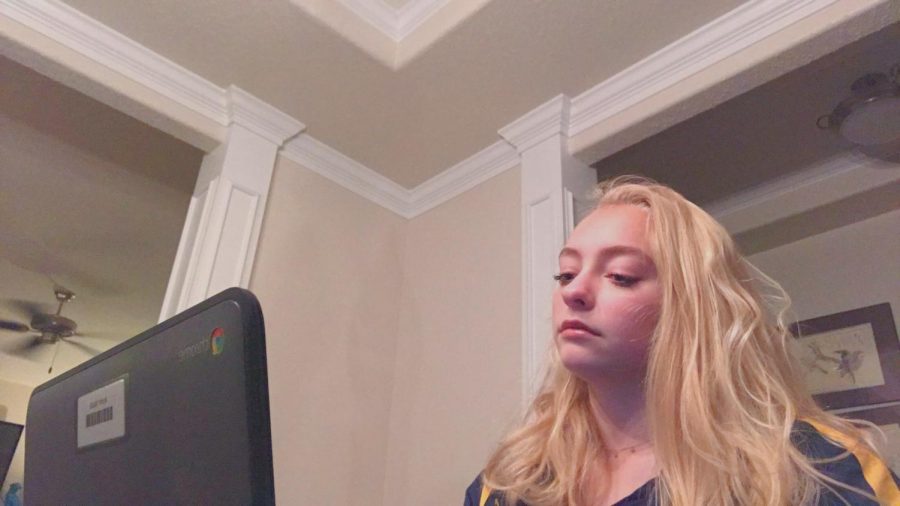How to survive virtual learning
Tips from a former virtual learner
MSA sophomore Ava Estes works on her virtual assignments on Chromebook during the COVID19 crisis.
April 23, 2020
Virtual platforms have become necessary to finish the 2019-2020 school year due to the pandemic-level spread of COVID-19. VBCPS, along with other school systems around the world, transferred to virtual learning on March 14.
At first, students were ecstatic. Excited for a break from the normal school schedule, most students expected the virtual schoolwork to be busy work until school opened its doors once again.
Unfortunately, most had no idea just how long it would last or how rigorous it could be. Virtual school can be just as hard, if not more so, than a typical classroom environment.
“Time management is crucial for virtual learners. I suggest setting small periods of time in a specific area of your house that you only do schoolwork,” said PE teacher and online instructor Christine Thornton.
Virtual learning can take a mental and physical toll. Staring at a screen all day can cause headaches and distressed eyes, as well as aching joints from sitting in the same position. Just like the five-minute breaks between blocks, students at home should allow time for the body to reboot. Take a walk, make a snack, or even go to the bathroom to rejuvenate the brain, recommends Thornton.
“The best way is to workout first thing in the morning, then get to your virtual lessons. You’ll be more alert, and the endorphins your body creates as you workout and are active, make you happy. So set a schedule, avoid distractions and get active in some way,” said Thornton.
Just like students, teachers may also struggle with the transfer to the virtual classroom. As teachers navigate to combine more synchronous with asynchronous platforms and roll out new curriculums or choice boards, some created by VBCPS’s Teaching and Learning, it may serve all to develop the skills of flexibility and patience during this time of uncertainty.
“Virtual learning is hard, but what’s helped me to stay motivated is to keep a schedule,” said sophomore Ava Estes. “There’s nothing more satisfying than being able to cross things off your list.”


